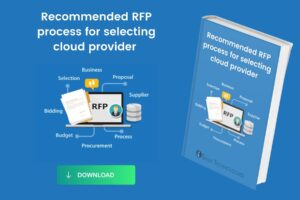In today’s data-driven world, organizations face the challenge of managing and leveraging vast amounts of data effectively. DataOps has emerged as an approach that combines data management, development, and operations to enable seamless and efficient data-driven processes. This article explores the concept of DataOps, its principles, framework, and the importance of training in this domain.
Understanding DataOps
What is DataOps?
DataOps is a collaborative approach that integrates data engineering, data integration, data governance, and data analytics to deliver high-quality, reliable, and actionable insights. It aims to streamline the end-to-end data lifecycle, encompassing data collection, processing, validation, and delivery.
DataOps promotes cross-functional collaboration, automation, and continuous improvement to enable organizations to derive value from their data assets efficiently.
Importance of DataOps
DataOps plays a vital role in addressing the challenges associated with data management in modern organizations. By adopting DataOps practices, businesses can enhance data quality, improve data governance, accelerate data processing, and enable faster and more reliable decision-making.
DataOps fosters collaboration between data engineers, data scientists, data analysts, and other stakeholders, ensuring smooth data operations and maximizing the value derived from data assets.
Principles of DataOps
DataOps is guided by several principles that shape its implementation and ensure effective data operations.
Collaboration and Communication
DataOps emphasizes collaboration and effective communication between various teams involved in data operations. It encourages cross-functional collaboration, breaking down silos, and fostering a culture of shared responsibility and knowledge exchange. Collaboration tools, agile methodologies, and regular team interactions promote transparency, efficiency, and effective data management.
Automation and Orchestration
Automation and orchestration are crucial in DataOps to streamline and expedite data processes. By automating repetitive tasks, organizations can reduce manual errors, enhance efficiency, and save valuable time. Orchestration tools help manage complex data workflows, enabling the seamless execution of data pipelines, data transformations, and data integration processes.
Quality and Governance
Data quality and governance are essential components of DataOps. Ensuring data accuracy, completeness, consistency, and timeliness is crucial for making informed business decisions. DataOps promotes the implementation of data quality checks, data validation processes, and adherence to data governance policies. By establishing robust data quality and governance practices, organizations can trust the insights derived from their data assets.
DataOps Framework
The DataOps framework provides a structured approach to managing data operations. It comprises several key stages that collectively form the end-to-end data lifecycle.
Data Integration and Ingestion
Data integration and ingestion involve collecting data from various sources and consolidating it into a unified data environment. This stage focuses on efficiently extracting data, transforming it into a suitable format, and loading it into the target data storage or data lake. Robust data integration and ingestion processes ensure the availability of clean and reliable data for downstream analysis and processing.
Data Processing and Transformation
Data processing and transformation involve applying various operations, algorithms, and calculations to raw data to extract meaningful insights. This stage includes data cleaning, data normalization, feature engineering, and other transformations that prepare the data for analysis and modeling. DataOps emphasizes efficient data processing techniques, leveraging technologies such as distributed computing, parallel processing, and in-memory analytics to optimize performance.
Data Quality and Validation
Data quality and validation are crucial stages in DataOps to ensure the accuracy, consistency, and reliability of data. DataOps teams implement data quality checks, perform data profiling, and validate data against predefined rules or business requirements. By addressing data anomalies, identifying data inconsistencies, and resolving data quality issues, organizations can maintain a high standard of data integrity and reliability.
Data Delivery and Deployment
Data delivery and deployment focus on making data insights available to stakeholders in a timely and accessible manner. This stage involves visualizing data through dashboards, reports, or interactive tools, enabling users to explore and analyze data effectively. DataOps teams ensure secure and scalable data delivery mechanisms, such as APIs, data services, or data pipelines, to facilitate efficient data access and utilization.
Getting Trained in DataOps
Researching DataOps Training Options
To get trained in DataOps, it is essential to research various training options available. Look for reputable training providers, online courses, and certifications that cover DataOps principles, frameworks, and relevant technologies. Read reviews, compare curricula, and consider the specific skills and knowledge you want to acquire.
Choosing the Right DataOps Training Program
Selecting the right DataOps training program depends on factors such as your learning preferences, career goals, and budget. Look for comprehensive programs that cover essential DataOps concepts, tools, and methodologies. Consider factors such as instructor expertise, hands-on practice, real-world case studies, and post-training support.
Conclusion
DataOps is a transformative approach that combines collaboration, automation, and data governance to enable efficient and reliable data operations.
By following the principles of DataOps and implementing a structured DataOps framework, organizations can streamline data processes, improve data quality, and drive data-driven decision-making.
Investing in DataOps training can equip individuals with the necessary skills to contribute to successful data operations and unlock the true potential of data assets.





